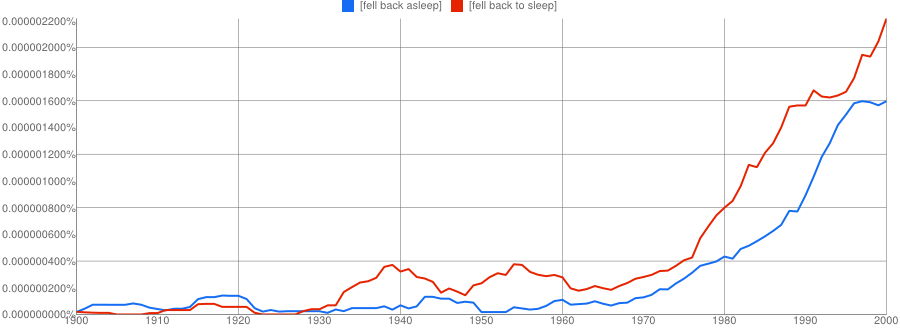I can't see any reason to dispute the grammaticality of fall back asleep, but two things that did (mildly) surprise me when I looked into usage patterns were:-
- It's almost as common as fall back to sleep (which version sounds far more natural to me).
- Both usages were relatively uncommon until just a few decades ago.

(I see no evidence of any significant US/UK split in terms of either preference or prevalence.)
My guess is that both OP and Imyself find the asleep version less acceptable because it doesn't fit the same pattern as go back to sleep (where go back asleep is virtually unknown).
